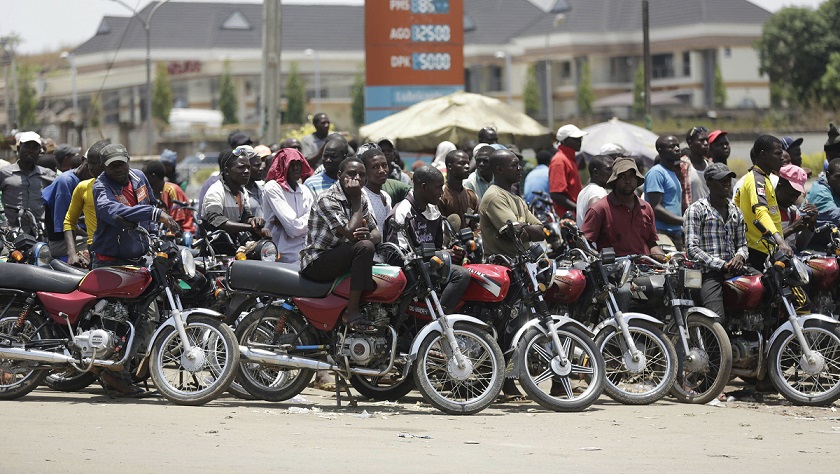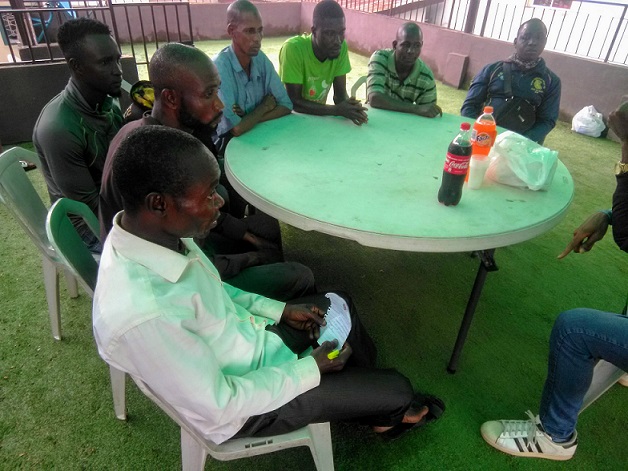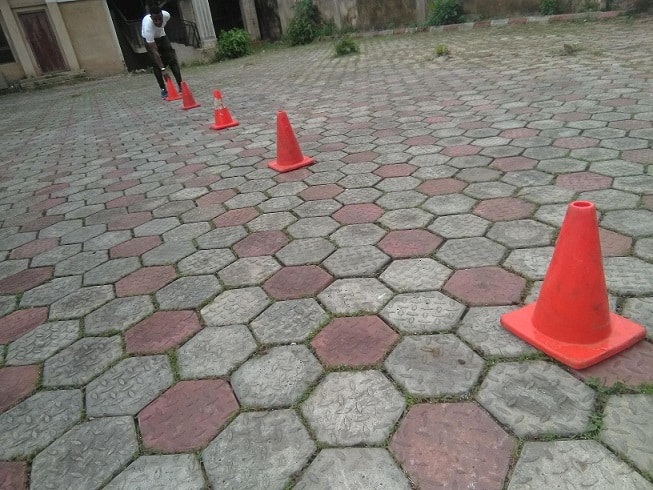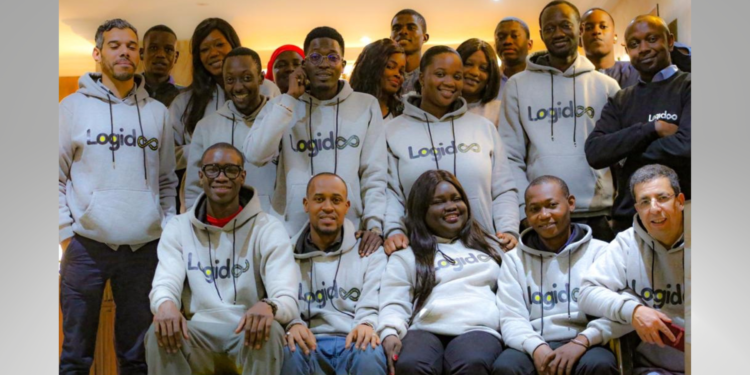It’s Wednesday and a rider training session is about to get underway at the EasyMobility facility in Anthony Village, Lagos State, Nigeria.
While waiting for their instructor, riders help themselves to light refreshment already laid out on a table. This small feast is a normal practice that takes place before any class commences. But, there is a catch.
For prospective intakes, the meal is a way to keep them interested in the class. It is, however, an incentive for existing riders who have been convinced to trade being on the road for a few hours of retraining.
The Class gets underway. During the session, the instructor asks the trainees in pidgin English if they are all following; and like children in a formal classroom, the riders-in-training uniformly chorus, “Yes.”
A typical commercial bike rider in Nigeria is familiar with the rudiments of riding a bike. Once the basic knowledge of riding has been acquired, what follows is getting a bike and putting on the road.
However, this fundamental cultural practice has obvious health and environmental impact.
Environmental concerns
Ever since the traditional okada gained popularity as a commercial means of transportation, it has been associated with high rates of traffic injuries and mortality in Nigeria.
According to the Department of Pathology and Forensic Medicine, Lagos State University Teaching Hospital, the population burden of road traffic accidents (RTA) in Lagos alone is estimated to be 41 per 1000 population; motorcycle injuries account for over half of these injuries.
Records of the National Motorcycle and Tricycle Riders Association as of 2014 show about 8 million registered commercial motorcycles in Nigeria. Statistically, not much has changed in terms of Nigeria’s economic situation since then, so that number has most likely gone up.
The lack of education of most of the riders, coupled with their ignorance of traffic signs, puts millions of lives at risk on a daily basis; and judging by the looks on the faces of those present at this class training, the exercise isn’t the norm.
In order to however increase awareness and promote a culture of safety around motorcycle operations, these exercises should be encouraged. This is what on-demand motorcycles services have started.
Bike-hailing startups and the cultural shift
“We’ve barely recorded any cases of accidents with rider or passenger casualty. Although this can be easily attributed to our small fleet size of 300 bikes, in truth it comes down to our training,” says Adekunle Omololu, about the depth of EasyMobility’s training.
Generally, training is at the heart of the operations of mobility players because, though a critical thing they need to scale effectively is riders, they are not allowed to pick random okada men off the streets.
Expectedly, training techniques vary from one on-demand startup to the other. But generally, the focus is on how riders should relate to passengers, mode of dressing, speed limit, navigation, and road signs.
For EasyMobility, training begins with a written test, which is followed by a riding test; riders who pass both tests qualify for the class.
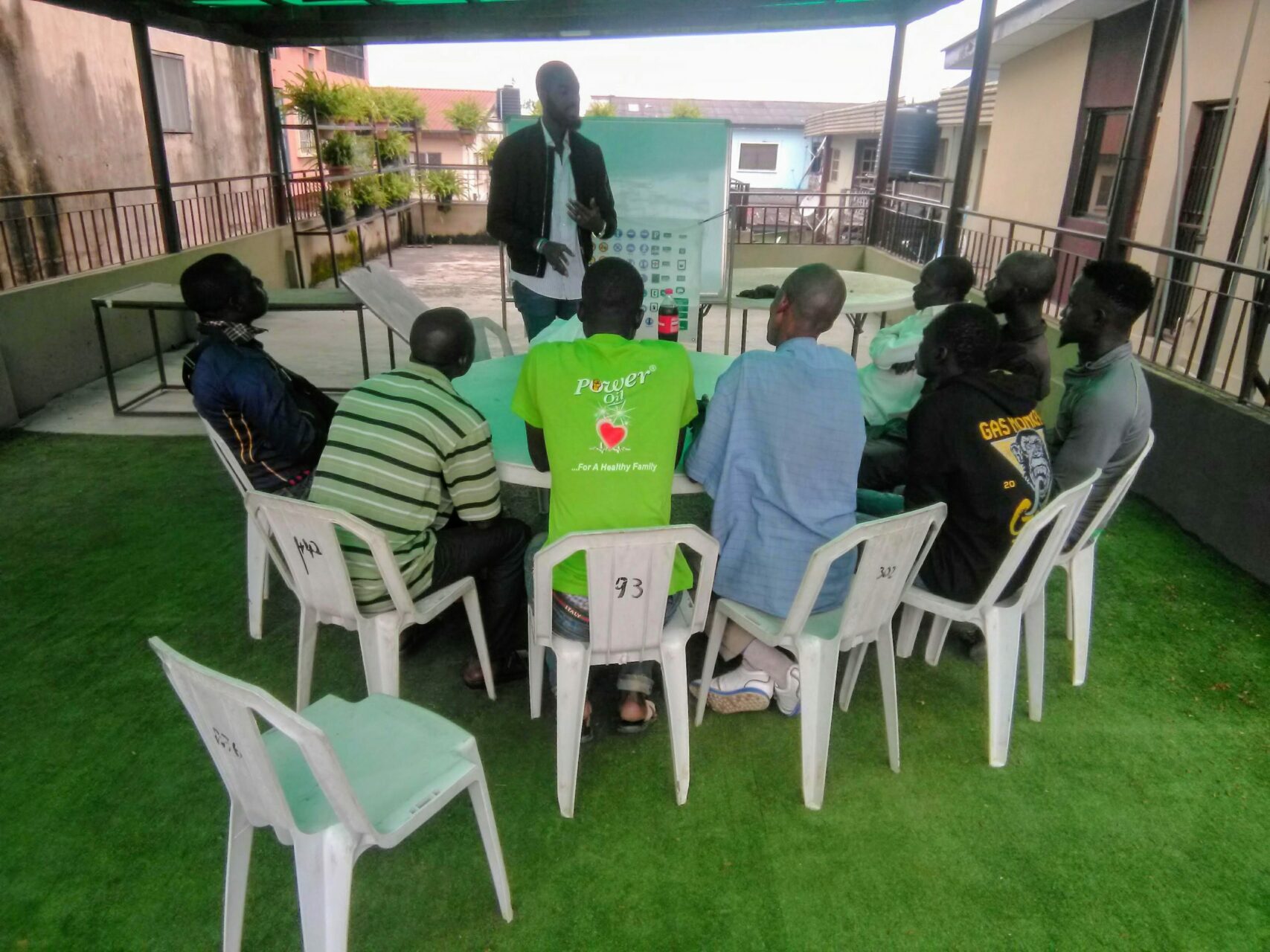 During the class training, the riders familiarise themselves with road signs. After the class, they are approved roadworthy and handed their bikes.
During the class training, the riders familiarise themselves with road signs. After the class, they are approved roadworthy and handed their bikes.
In the same vein, MAX ensures riders take a critical riding and psychometric test. Having passed those, they go into the training proper, which consists of both class and field exercises. A typical class training for MAX focuses on soft skills, while the field training is meant to simulate obstacle courses on the road; riders have a dashboard where they view their result.
ORide employs the services of TORA, a rider recruitment and placement agency, to train its riders. The first point of concern for TORA is recruiting educated riders because it considers the ability to read and write important for abiding with traffic laws.
Like MAX and EasyMobility, TORA has special class and field training exercises, with stipulated completion times.
Why it is important
Riding a motorcycle requires optimal use of all senses to monitor the vast ever-changing road environment. One important function of the training is that it creates an awareness of the most important and most frequent risks encountered by motorcycle riders.
In developed countries around the world, road safety is an important issue for all motorcyclists. The UK, for instance, stipulates advanced motorcycle training courses for motorcycle riders. Also, in other European countries, motorcycle riders are made to undergo one road safety training or the other.
Nigeria should not be any different. The only challenge is that there are no recognisable laws that compel motorcycle riders to get proper training before taking to the road. Instead, what exists are systems that only allow these riders to register their motorcycles.
But considering how the on-demand economy has created major disruption in the past five years, it is unsurprising how they are spearheading this cultural innovation.
According to EasyMobility CEO, Adekunle Omololu, there is no state law specifically for motorcycle training and government is only following the standard set by players in the mobility industry.
Granted, there are still a few lapses in some of their operations such as rudimentary and largely manual-driven training exercises. The possibility that riders see the training as merely a means to secure the bikes cannot also be ruled out.
Nevertheless, on the road, on-demand motorcycle riders stand out from the regular okada crowd; they look different with uniforms that have a call number for passengers to call in the case of recklessness. In addition, the fact that these bikes have trackers installed (allowing remote tracking) boosts passengers’ trust and confidence.
Big credit will go to these mobility players no doubt.

